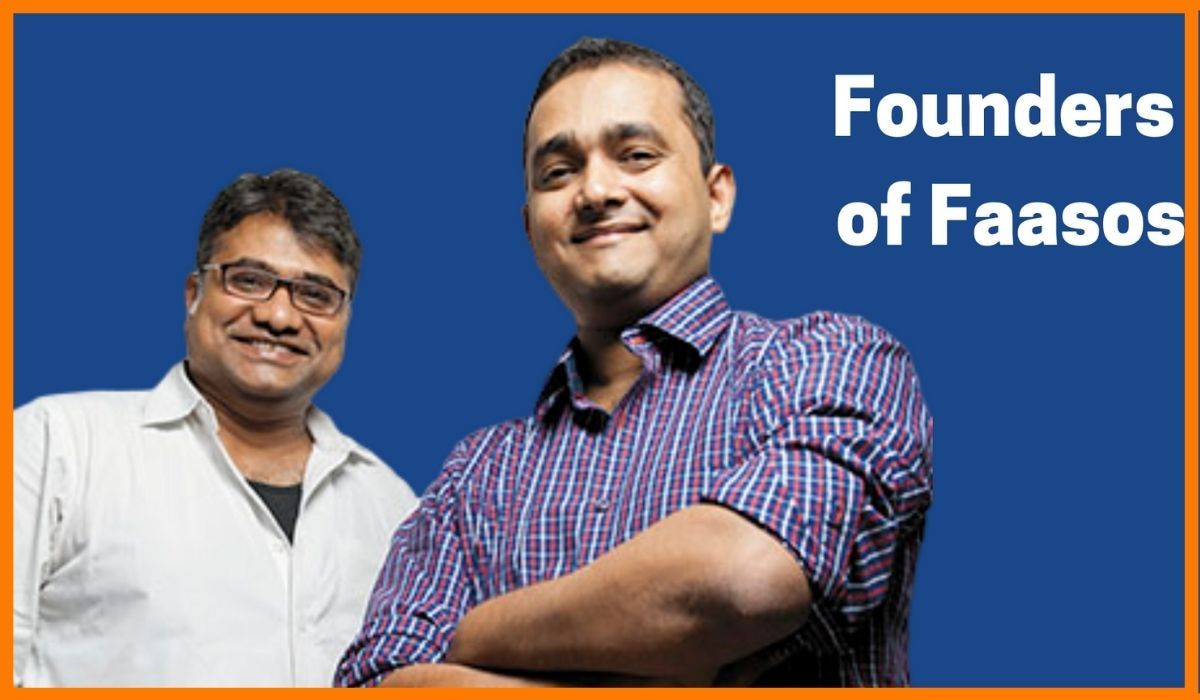Company Profile is an initiative by StartupTalky to publish verified information on different startups and organizations.
Britannia Industries is one of India’s leading food companies, with a 100-year legacy and annual revenues in excess of INR 16,000 crore. Britannia’s product portfolio includes Biscuits, Bread, Cakes, Rusks, and Dairy products, including Cheese, Beverages, Milk, and Yoghurt.
Britannia is a brand that many generations of Indians have grown up with and is cherished and loved in India and the world over. Brand Britannia is listed amongst the most trusted, valuable, and popular brands in various surveys conducted by prestigious organizations.
Know the Success Story of Britannia in the article ahead. Also, get a glance at Britannia’s company profile and know about the history of Britannia company, owner of Britannia company, Britannia’s Business Model, Founders, Revenue Model & more…
Britannia Introduction
| Startup Name | Britannia Industries Limited |
|---|---|
| Headquarters | Kolkata, West Bengal, India |
| Industry | Food Processing |
| Parent Company and Owner | Wadia Group |
| Founded | 1892 |
| Areas served | Worldwide |
| Website | www.britannia.co.in |
About Britannia and How it Works?
Britannia – Logo and its Meaning
Britannia – Founder and History
Britannia – Mission
Britannia – Products
Britannia – Business Model
Britannia – Revenue and Growth
Britannia – Financials
Britannia – Acquisitions
Britannia – Competitors
Britannia – Challenges Faced
Britannia – Future Plans
Britannia Company
About Britannia and How it Works?
Britannia Industries Limited is a food company, that is engaged in the manufacture of Biscuits, Bread, Cakes, Rusks, and Dairy products, including Cheese, Beverages, Milk, and Yoghurt. The Company operates through the Foods segment, which comprises bakery and dairy products.
The Company’s product brands under the biscuits category include Good Day, Crackers, NutriChoice, Marie Gold, Tiger, Milk Bikis, Jim Jam + Treat, Bourbon, Little Hearts, Pure Magic, and Nice Time. Its products under bread include Whole Wheat Breads, White Sandwich Breads, and Bread Assortment. Its products under the dairy category include Cheese, Fresh Dairy, and Accompaniments. Its products under the cakes category include Bar Cakes, Veg Cakes, Chunk Cake, Nut & Raisin Romance, and Mufills. Its product under the rusk category includes Premium Bake.
The products of the Company are exported across the world, which include Gulf Cooperation Council Countries (GCC), African Countries, and American Countries. Its subsidiaries include Manna Foods Private Limited and International Bakery Products Limited.
Britannia – Logo and its Meaning

As explained by a spokesperson of Britannia, Britannia’s new logo signifies “rebranding as the Total Foods Company from now on with the expansion of its offerings in both healthy and indulgent products. The wings of a bird signify freedom to choose, whenever and wherever you want to enjoy your food.”
Britannia – Founder and History
Britannia Industry was founded in 1892 by a group of British businessmen with an investment of ₹295. Initially, biscuits were manufactured in a small house in central Kolkata.
- 1918 – The Company was born on 21st March of the year 1918 as a public limited company.
- 1921 – Britannia became the first company east of the Suez Canal to use imported gas ovens. Britannia’s business was flourishing. But more importantly, Britannia was acquiring a reputation for quality and value. As a result, during the tragic World War II, the Government reposed its trust in Britannia by contracting it to supply large quantities of ‘service biscuits’ to the armed forces.
- 1924 – A new factory was established in the year 1924 in Mumbai. In the same year, the Company became a subsidiary of Peek Frean & Company Limited UK, a leading biscuit manufacturing company and further strengthened its position by expanding the factories at Calcutta and Mumbai.
- 1952 – The Kolkata factory was shifted from Dum Dum to spacious grounds at Taratola Road in the suburbs of Kolkata. During the same year, automatic plants were installed in Calcutta.
- 1954 – The automatic plants were installed in the Mumbai plant. Also in the same year, the development of high-quality sliced and wrapped bread in India was initiated by the company and was first manufactured in Delhi.
- 1965 – A new bread bakery was set up in Delhi in the year 1965.
- 1975 – Britannia Biscuit Company takes over biscuit distribution from Parry’s during the year 1975.
- 1976 – The company introduced Britannia bread in Calcutta and Chennai.
- 1978 – The company made a Public issue in that Indian shareholding crossed 60%.
- 1979 – The Company redefined itself from Britannia Biscuit Company Limited to Britannia Industries Limited.
Fast forward to the Current Status of 2025 – Britannia is one of India’s oldest existing companies. It is now part of the Wadia Group headed by Nusli Wadia and is the owner of Britannia. The company’s revenue stood at INR 16,769.3 crores INR in 2024. Varun Berry is the Executive Vice-chairman and Managing Director of Britannia Industries.
Ranjeet Kohli was the CEO of the company since 2022, and he resigned in March 2025.
Britannia – Mission
The mission statement of Britannia says, “To improve the financial health of our members and customers by satisfying their evolving borrowing, investment and housing needs.”
on different startups and organizations. The content in this post has been
approved by the organization it is based on. Coca-Cola India, is one of the country’s leading beverage companies, offering a
range of healthy, …

Britannia – Products

Bakery Products: Biscuits account for 95% of Britannia’s annual revenue. The company’s factories have an annual capacity of 433,000 tonnes. The brand names of Britannia’s biscuits include VitaMarieGold, Tiger Biscuits, Nutrichoice, Good day, 50-50, Treat, Pure Magic, Milk Bikis, Bourbon, Nice Time, and Little Hearts, amongst others.
In 2006, Tiger, the mass market brand, realized $150.75 million in sales, including exports to the U.S. and Australia. This amounts to 20% of Britannia’s revenues for that year.
Dairy Products: Dairy products contribute close to 5% to Britannia’s revenue. The company not only markets dairy products to the public but also trades dairy commodities business-to-business. Its dairy portfolio grew to 47% in 2000-01 and by 30% in 2001-02.
Britannia – Business Model
The company operates in two business segments, namely, bakery products and dairy products. The company derives ~95% of its revenue from the biscuits segment while ~5% of its total sales coming from the non-biscuits category (dairy) and the International market.
The company’s Dairy business contributes close to 5 per cent of revenue, and Britannia dairy products directly reach 100,000 outlets. Britannia Bread is the largest brand in the organized bread market, with an annual turnover of over 1 lac tons in volume and Rs.450 crores in value. The business operates with 13 factories and 4 franchisees, selling close to 1 million loaves daily across more than 100 cities and towns in India.
on different startups and organizations. The content in this post has been
approved by the organization it is based on. PepsiCo, Inc., an American food and beverage company that is one of the largest
in the world, with…

Britannia – Revenue and Growth
Between 1998 and 2001, the company’s sales grew at a compound annual rate of 16% against the market, and operating profits reached 18%. Presently, the company has been growing at 27% a year, compared to the industry’s growth rate of 20%. At present, 90% of Britannia’s annual revenue of Rs 22 billion comes from biscuits.
Britannia is one of India’s 100 Most Trusted brands listed in The Brand Trust Report. Britannia has an estimated market share of 38%.
Britannia – Financials
Britannia Industries has shown steady revenue growth over the years while managing its expenses efficiently. However, its net profit in FY24 declined by 7.8% compared to FY23.
| Particulars | FY24 | FY23 | FY22 | FY21 | FY20 |
|---|---|---|---|---|---|
| Revenue | INR 16,983.5 Crore | INR 16,516.4 Crore | INR 14,359.1 Crore | INR 13,449 Crore | INR 11,879 Crore |
| Expenses | INR 14,063.9 Crore | INR 13,864.6 Crore | INR 12,279.6 Crore | INR 10,935.6 Crore | INR 10,018.1 Crore |
| Net Profit/Loss | INR 2,134.2 Crore | INR 2,316.3 Crore | INR 1,516 Crore | INR 1,850.6 Crore | INR 1,393.6 Crore |

Revenue grew by 2.8% in FY24 over FY23, but net profit declined by 7.8% due to rising expenses.
Britannia Industries Revenue
Britannia has maintained steady revenue growth, supported by strong demand and expansion efforts.
| Particulars | FY24 | FY23 |
|---|---|---|
| Revenue from Operations | INR 16,769.3 Crore | INR 16,300.5 Crore |
| Other Income | INR 214.2 Crore | INR 215.9 Crore |
| Total Revenue | INR 16,983.5 Crore | INR 16,516.4 Crore |
Britannia Industries Profit/Loss
Despite revenue growth, profitability declined due to higher operational costs.
| Particulars | FY24 | FY23 |
|---|---|---|
| Gross Profit | INR 2,919.6 Crore | INR 2,651.8 Crore |
| Operating Profit | INR 2,657.2 Crore | INR 2,079.3 Crore |
| Net Profit/Loss | INR 2,134.2 Crore | INR 2,316.3 Crore |
Net profit declined by 7.8% in FY24, despite an increase in gross profit.
Britannia Industries Expenses
Expense management remains crucial for profitability, with higher costs affecting margins.
| Particulars | FY24 | FY23 |
|---|---|---|
| Cost of Materials Consumed | INR 8,546.9 Crore | INR 8,326.7 Crore |
| Employee Benefits Expense | INR 708.7 Crore | INR 658.4 Crore |
| Finance Costs | INR 164.0 Crore | INR 169.1 Crore |
| Depreciation & Amortization | INR 300.5 Crore | INR 225.9 Crore |
| Other Expenses | INR 3,398.7 Crore | INR 3,220.0 Crore |
| Total Expenses | INR 14,063.9 Crore | INR 13,864.6 Crore |
Total expenses increased by 1.4% in FY24, mainly due to higher raw material and employee costs.
Quick Summary:
- Revenue Growth: 2.8% increase in FY24, supported by strong sales demand.
- Profitability Decline: Net profit fell by 7.8%, despite revenue growth.
- Expenses Rise: 1.4% increase in expenses, mainly due to higher material and employee costs.
Britannia – Acquisitions
- Britannia Industries, India’s largest processed food company, has announced that it has entered into an agreement with Fonterra Brands (Mauritius Holding) Ltd, Mauritius, for acquiring the latter’s 49 per cent Equity and Preference shareholding in Britannia New Zealand Foods Pvt Ltd (BNZF), their Joint Venture Company engaged in Dairy business. This acquisition is subject to Reserve Bank of India approval.
- The company and its associates acquired majority stakes in Dubai-based Strategic Foods International LLC and Oman-based Al Sallan Food Industries in March 2007.
Britannia – Competitors
The top 10 competitors in Britannia Industry Limited’s competitive set are:
- Parle Products
- ITC
- Horlicks
- Biskfarm
- Richfield Industries
- Frisco Foods
- Cookie Man
- MTR Foods Pvt. Ltd.
- Milo Australia & New Zealand
- Complan and Cadbury Bournvita
Its top Dairy competitors are:
Britannia – Challenges Faced
- A businessman from Kerala, Rajan Pillai, secured control of the group in the late 1980s, becoming known in India as the ‘Biscuit Raja’. In 1993, the Wadia Group acquired a stake in Associated Biscuits International (ABIL) and became an equal partner with Groupe Danone in Britannia Industries Limited. It was referred to as India’s most dramatic corporate sagas. Pillai ceded control to Wadia and Danone after a bitter boardroom struggle, then fled his Singapore base to India in 1995 after accusations of defrauding Britannia, and died the same year in Tihar Jail.
- Biscuit major Britannia Industries, the star amongst the Indian FMCG pack of late, says generating consumer demand remains the biggest challenge in the new year. FMCG companies in general, reported lacklustre results in recent quarters. But the biscuit maker’s numbers beat expectations, with the Bengaluru-based company’s profit margins at a record high in the last two quarters.
- In a separate dispute from the shareholder matters, the company alleged in 2006 that Danone had violated its intellectual property rights in the Tiger brand by registering and using Tiger in several countries (in Indonesia in 1998 and later in Malaysia, Singapore, Pakistan, and Egypt) without its consent. Whilst it was initially reported in December 2006 that agreement had been reached, it was reported in September 2007 that a solution remained elusive. In the meantime, since Danone’s biscuit business has been taken over by Kraft, the Tiger brand of biscuits in Malaysia was renamed Kraft Tiger Biscuits in September 2008.
- Britannia is also facing the challenge of rising employee attrition after the recent change of guard.
on different startups and organizations. The content in this post has been
approved by the organization it is based on. Nestlé is the world’s largest food and beverage company, in terms of revenue.
It is a Swiss Compa…

Britannia – Future Plans
Britannia Industries is focusing on a region-specific strategy to compete with local players.
“We are ready to adapt our brand, flavors, pricing, and recipes to meet regional demands, which has been a strong advantage for us,” said Varun Berry, vice-chairman and managing director, during an investor call.
Addressing distribution challenges, Berry noted that Britannia lags behind competitors in the rural Hindi belt. The company remains committed to deepening its presence in urban markets while expanding its reach in rural areas.
FAQs
Is Britannia a FMCG company?
Yes, Britannia is a FMCG company and one of the favourite and oldest brands in India.
How many products are in Britannia?
Britannia’s product portfolio includes Biscuits, Bread, Cakes, Rusk, and Dairy products including Cheese, Beverages, Milk and Yoghurt. Its brand portfolio includes Tiger, Marie Gold, Good Day, 50:50, Treat, NutriChoice and Milk Bikis. BIL has a presence in more than 60 countries across the globe.
Britannia company is from which country?
Britannia is an Indian Company with headquarters in Kolkata.
How does Britannia make money?
Britannia company operates in two business segments to make money, namely, bakery products and dairy products.
When was Britannia founded?
Britannia was launched on 16 April 1953.
Who is Britannia founder?
A British businessman C.H. Holmes founded Britannia Biscuit Company in 1918.
Who is Britannia owner?
Wadia group is Britannia company owner.
What is Britannia logo meaning?
The Britannia logo symbolizes British strength and maritime heritage, featuring a helmeted female warrior with a trident and shield. This iconic representation traces its roots back to Roman depictions of Great Britain, reflecting the nation’s rich history and identity.
























































